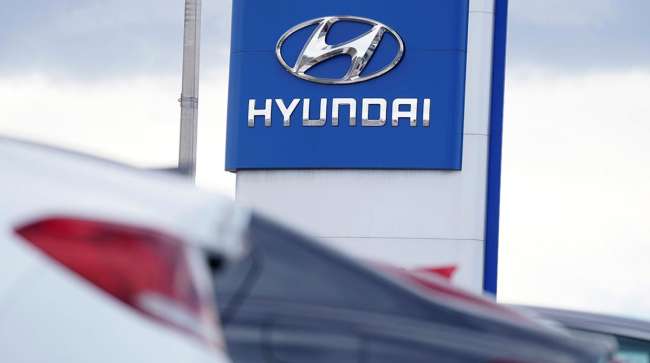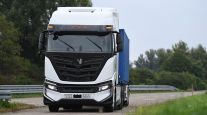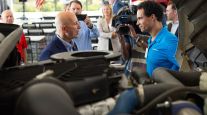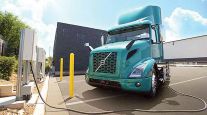Bloomberg News
Battery Giants, Hyundai Concerned by US Moves on China Supplies

[Stay on top of transportation news: Get TTNews in your inbox.]
South Korea’s biggest electric car batterymakers and Hyundai Motor Co. have expressed concern over new U.S. legislation aimed at boosting domestic production of EVs and reducing the use of Chinese materials, moves they say could hurt their competitiveness.
Korean trade ministry officials met with Hyundai Motor, LG Energy Solution Ltd., Samsung SDI Co. and SK On Co. to listen to their “concerns and difficulties” about the measures in the tax and energy bill, the ministry said in a statement Aug. 11. Chief among these are the need to assemble EVs in North America and to quickly end a reliance on China for the battery supply chain in order for the vehicles to qualify for a maximum $7,500 tax credit.
The concerns, along with a request for the tax credit requirements to be eased, were conveyed to the U.S. Trade Representative, along with a warning the steps may breach the U.S.-Korea free trade agreement and World Trade Organization rules, a trade ministry spokesman said Aug. 12.
Want more news? Listen to today's daily briefing above or go here for more info
South Korean batterymakers source most of their materials from China, and finding new sources could be difficult amid surging demand and short supply. Meanwhile, all the EVs Hyundai sells in the U.S. and Europe are made in South Korea. The automaker plans to open its first U.S. plant in Georgia in 2025.
South Korean batterymakers hold around 30% of the global market and supply carmakers including Tesla Inc., General Motors Co., Ford Motor Co., and Rivian Automotive Inc.
The firms are waiting for more details on the U.S. rules and some are already seeking to diversify suppliers outside China, according to people at the four big South Korean cell and materials makers, who asked not be named because of the sensitivity of the issue. The draft of the legislation still seems to be vague and the thresholds may be adjusted after U.S. carmakers lobby Congress, some of the people said.
“The cost for making batteries will rise as companies will have to spend more on a new supply chain,” said Kim Min-Ji, senior researcher at state-run Korea Institute for Industrial Economics & Trade. “It’s not easy to change a metal supplier, and it’s even harder to refine metals at a low cost, which China does, especially in an eco-friendly way.”
South Korean batterymakers, which use chemistries like nickel, cobalt, manganese or aluminum, imported more than 80% of the key minerals from China in 2020, according to the Korea Institute for Industrial Economics & Trade. Japan also imported 80% of its hydroxide lithium and 96% of manganese from China for making batteries, the institute said.




